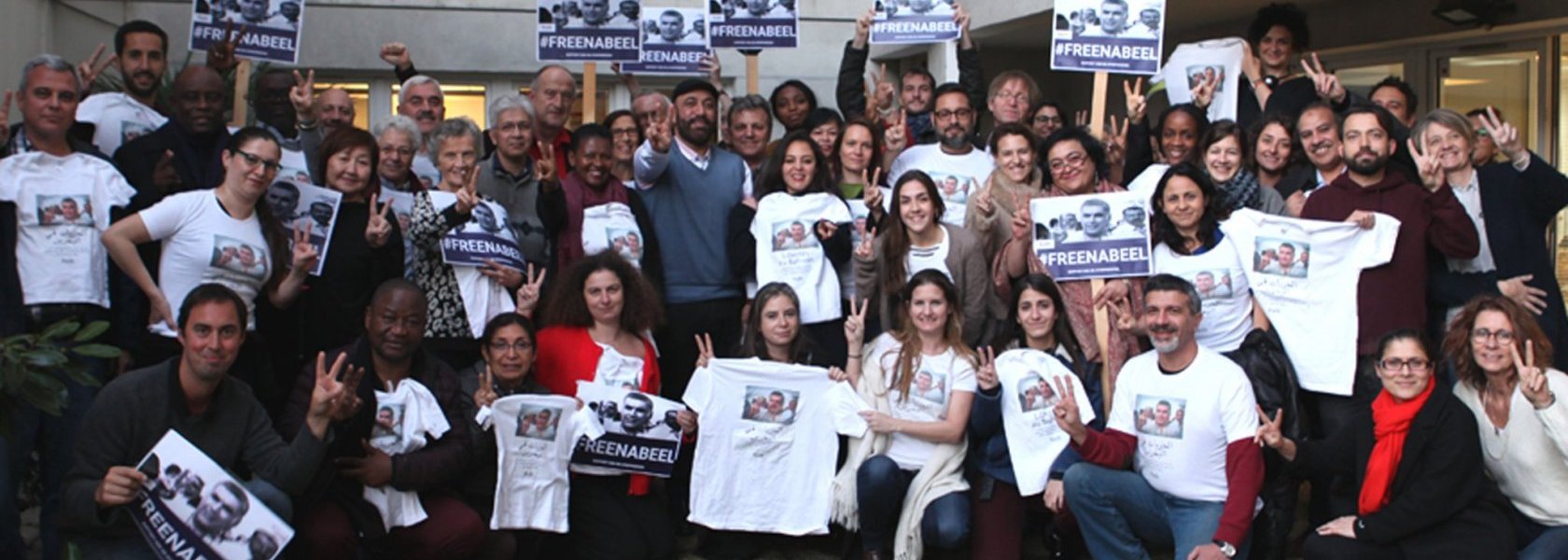The Ambassador of Bahrain to France received on November 24th a delegation of the FIDH International Board, who handed him a letter asking his government to immediately release FIDH Deputy Secretary General, Nabeel Rajab, President of the Bahrain Center for Human Rights. A Bahraini citizen, on 22 November 2017, this iconic human rights defender saw his prison sentence confirmed on appeal. His crime? Stating publicly that journalists and human rights activists were denied entry to the country. As his health rapidly deteriorates, he is facing further judicial proceedings and judicial harassment. Coupled with the degrading treatment he is subjected to in prison, Nabeel Rajab’s life is now at risk.

In a letter given to His Excellency Mr Mohammed Abdulghaffar Abdullah, Ambassador of Bahrain to France, in fear for Nabeel’s life, FIDH calls on the Bahraini government to end all judicial harassment against Nabeel Rajab and to release him immediately.
In tweets, interviews, and op-eds published in Le Monde and The New York Times, Nabeel has denounced the lack of freedom of expression in Bahrain, where human rights activists are regularly persecuted, subjected to travel bans and imprisoned. Having spent 4 of the past 6 years behind bars, Nabeel’s two-year prison sentence was just confirmed on appeal after an unfair trial for having dared… to give media interviews.
For excercising his right to freedom of speech, Nabeel is also being prosecuted on other charges and risks 15 years in jail for tweeting about the cruel treatment inflicted on prisoners in Jaw prison and Saudi coalition bombings in Yemen.
Today Bahrain is under a total black-out, preventing human rights activists from expressing themselves or traveling and forbidding journalists and human rights defenders from investigating. In October, an FIDH delegation mandated to investigate Nabeel’s situation, as well as that of other imprisoned human rights defenders, was denied entry to the country.
Meanwhile, Nabeel’s health has deteriorated significantly. After being hospitalised, his return to prison has been marked by new persecutions and dangerous, humiliating and degrading detention conditions. Beaten on his arrival, and woken up and searched in the middle of the night, his clothes and toiletries were confiscated and his head was shaved. Today Nabeel’s life is in danger.


